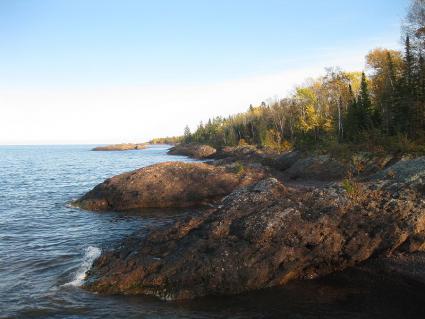New climate center in Minnesota includes focus on moose, wild rice and Lake Superior
A partnership announced last fall by the University of Minnesota will study climate change and the intersection of human activity and wildlife management in the Upper Midwest and Great Lakes region.
The Climate Adaptation Science Center (CASC), as the partnership is called, operates out of the Institute on the Environment on the university’s St. Paul campus. It is one of just nine such collaborative entities across the country.
The Midwest CASC will support management and protection of land, water and natural resources with actionable climate science, according to state and federal policy makers involved with the formation of the partnership. It will pay special attention to tribal concerns and build off the unique and robust experience of Midwest Indigenous communities with adaptation science and practice.
In making the announcement in September 2021, Secretary of the Interior Deb Haaland noted that in order to address the climate crisis “we need to be guided by the best available science. Integrated collaboration with educational and natural resource organization partners ensures that federal, tribal and state resource managers have access to the collective wisdom of world renowned experts. The Midwest Climate Adaptation Science Center will better position us to mitigate climate impacts while focusing needed attention to Tribal and state resources that are particularly vulnerable to climate change.”
The designation comes with $4.5 million in funding, but even more could be made available for projects and research, according to UM officials.
Jessica Hellmann is the director of the Institute on the Environment at the University of Minnesota. She is an expert on global change ecology, climate adaptation and the reduction of greenhouse gas emissions. Hellmann also works with governments and corporations to build investment in climate change adaptation.
WTIP’s Joe Friedrichs spoke with Hellmann about the significance of the newly formed Climate Adaptation Science Center. In their conversation, Hellmann observes the importance of both local and youth engagement in addressing the impacts of climate change. Hellmann specifically mentions local resident Olya Wright.
Wright is 16 years old and lives near Grand Marais. In 2014, she started the Nordic Nature Group in Cook County. Among its notable accomplishments, the group of local youth activists partnered with iMatter and Grand Marais city officials to pass a youth climate inheritance resolution.
More recently, Wright sent a request to the Cook County community and beyond requesting that people sign a petition declaring a local climate emergency. The Grand Marais City Council adopted the resolution on this topic during its meeting Jan. 26. The Cook County Board of Commissioners are set to hear a presentation from Wright and Naomi Arnica during a committee of the work session Feb. 15.
Listen to the audio below to hear the full interview with Hellmann on WTIP.
Tweet







